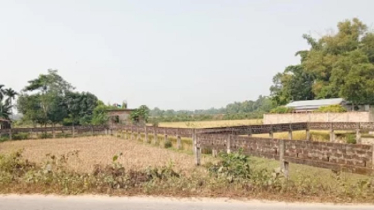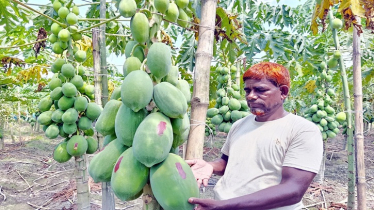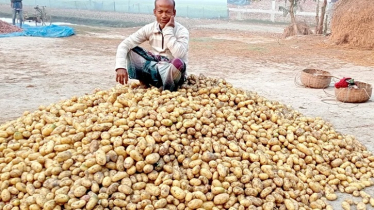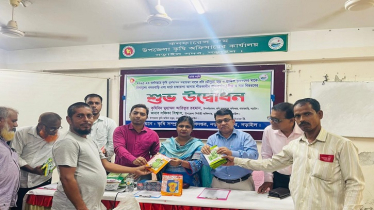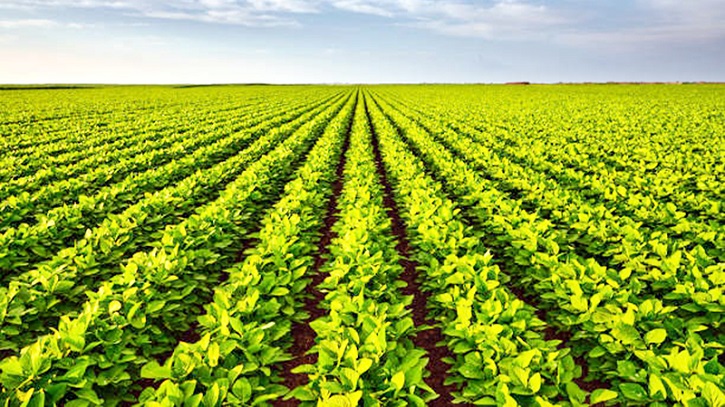
HSBC Bangladesh and Solidaridad Network Asia have launched a joint initiative to expand climate-resilient soybean cultivation in the country’s coastal regions. The project, titled “Improving Prosperity and Sustainability of Bangladesh Feed and Oil Industry Through Soybean Farming,” supports farmers in combating rising soil salinity and unpredictable weather, while also safeguarding livelihoods and contributing to national food security.
According to HSBC Bangladesh, more than 40,000 farmers are currently cultivating high-yield, short-duration, and salinity-tolerant soybean varieties on approximately 42,000 hectares of land. Climate-resilient crops improve soil fertility through natural nitrogen fixation, ensure higher yields and income for farmers, and help address long-term environmental challenges.
Soybean is a critical crop for Bangladesh’s feed and edible oil industries, reducing import dependency and providing affordable protein for poultry, fish, and livestock sectors. With growing global demand for sustainable, protein-rich food, Bangladeshi soybean farmers are increasingly able to strengthen their position in the market.
The project also plays a key role in empowering women entrepreneurs and small to medium enterprises. Through local women-led micro and small enterprises in Noakhali, tofu and nuggets made from locally produced soybeans are now available in various supermarkets in Dhaka, directly linking consumers to small-scale farmers. This represents a significant milestone in creating inclusive connections from production to market.
Farmer Kamal Uddin from Subarnachar said, “I have never seen soybean seeds like these before. The varieties I previously cultivated had small grains and low yields, making production costs difficult to manage. This year, with support from the project, I cultivated BU Soybean-4 and am extremely satisfied with the results. I achieved high yields and good profit, and I believe every farmer should adopt these new varieties.”
According to Solidaridad, farmers in the Noakhali region adopting high-yield, short-duration varieties and climate-smart agriculture (CSA) techniques have experienced more than 160 percent return on investment and an income increase of nearly 36 percent.
Selim Reza Hasan, Country Manager of Solidaridad, stated, “While fertile land has increased agricultural productivity, Bangladesh still struggles to meet domestic demand for oilseeds, leading to substantial annual import costs. Introducing high-yield, stress-tolerant soybean varieties provides farmers with diversification opportunities and a promising path to reduce import dependency. This ‘miracle crop’ has multidimensional and measurable impacts, enhancing not only small farmers’ incomes but also nutrition security and soil health.”
Mohammad Mahbub Ur Rahman, CEO of HSBC Bangladesh, said, “Through this partnership with Solidaridad, HSBC is supporting locally innovative soybean-based production, empowering farmers and strengthening local supply chains. From boosting the morale of coastal farmers to delivering soybean-based products on supermarket shelves, this initiative demonstrates how sustainable agriculture can drive prosperity.”
HSBC Bangladesh further noted that the project enhances climate-resilient farming practices, strengthens local value chains, and links small farmers to consumer markets and commercial production, creating sustainable and long-lasting impact.


